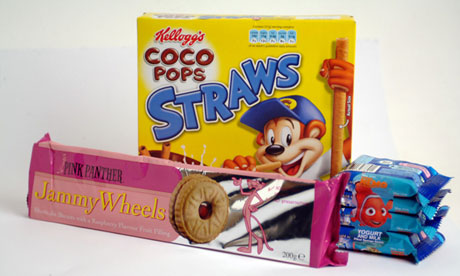
The government should ban high-sugar cereals such as Coco Pops and other foods that are contributing to an obesity epidemic among British children, the shadow health secretary has urged.
Regulations limiting the amount of sugar, salt and fat in processed foods should be considered if the food industry does not take action itself, according to Labour's Andy Burnham, who has begun a consultation on how to tackle obesity.
Burnham highlighted the case of breakfast cereals, saying many aimed at children are more than one-third sugar by weight.
"Like all parents, I have bought products like cereals and fruit drinks, marketed as more healthy, that contained higher sugar levels than expected," he told the Daily Telegraph. "I don't think that any parent would be comfortable with their child eating something that is 40% sugar."
A report by the Organisation for the Economic Co-operation and Development (OECD) found that English children were the third fattest in Europe, after Italy and Greece – but almost twice as obese as the French. Almost 27% of girls in England were overweight and 23% of boys.
The OECD estimated that a comprehensive anti-obesity strategy in England would cost less than £12 per person and save 70,000 lives per year.
Burnham has begun consulting with the public and experts on the issue, and is considering proposing a 30% cap on sugar in cereals. He warned that the rise in obesity was "storing up huge problems for the country and the National Health Service in the long term", and said the government had failed to tackle the epidemic.
But the Department of Health said it has helped reduce the levels of fat, sugar and salt in foods. A spokesman said: "By working with industry through the Responsibility Deal we have helped to reduce fat, sugar and salt in foods. There is now less salt in the food we buy, companies are cutting and capping calories and artificial trans fats are being widely taken out of food.
"We are working to reduce the amount of salt in food further, cut saturated fat consumption and we are exploring how to promote healthier food choices more widely. We also want more businesses making pledges so we get bigger results."

